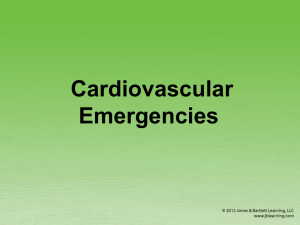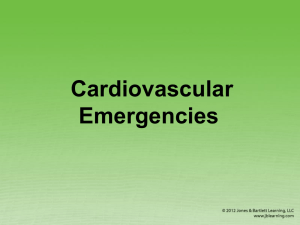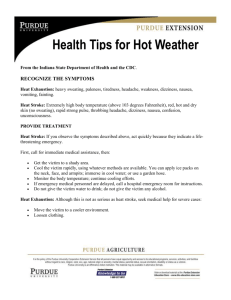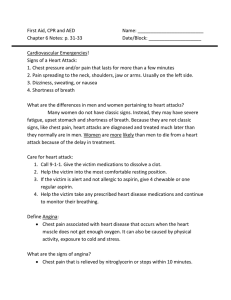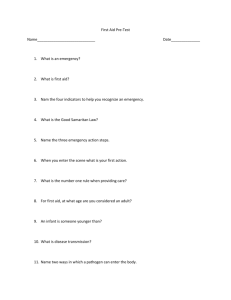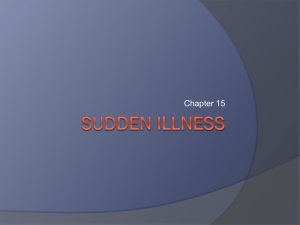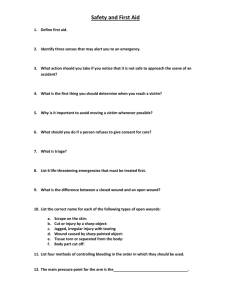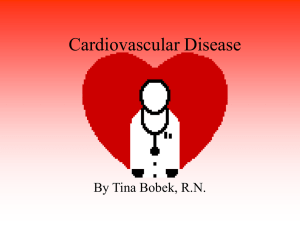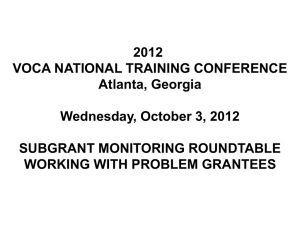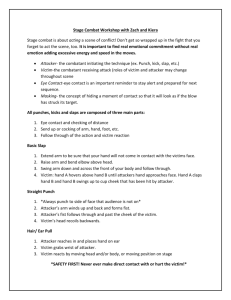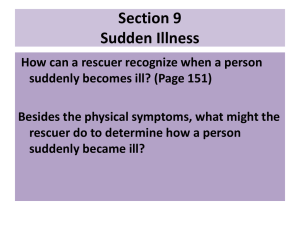chapter 6: cardiovascular emergencies
advertisement
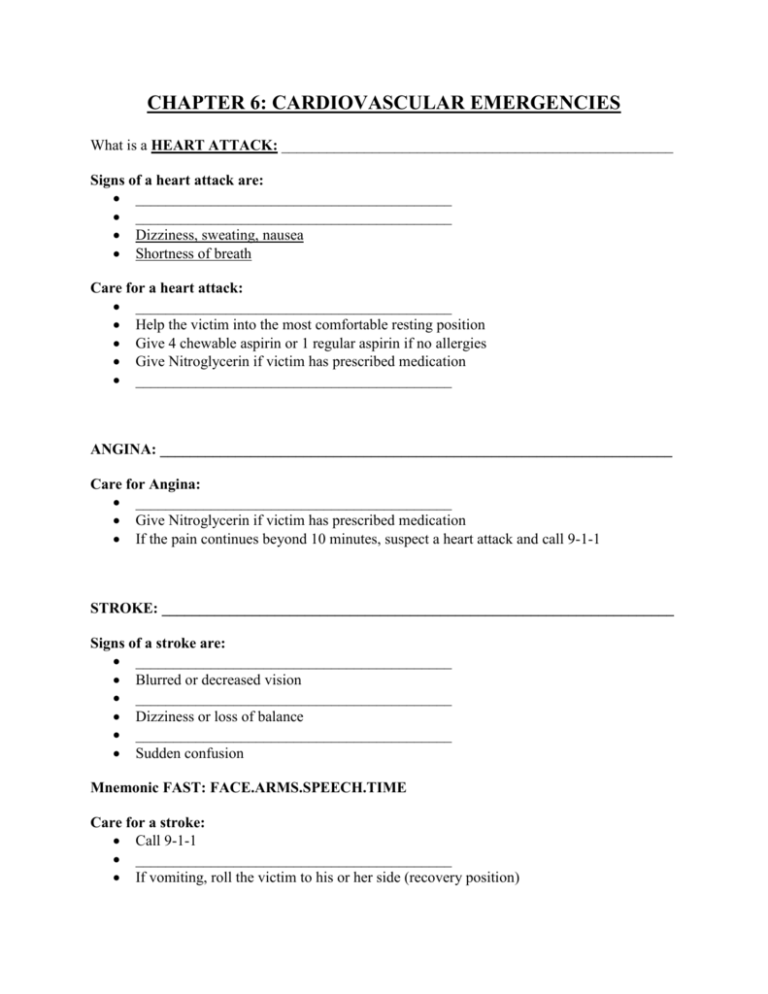
CHAPTER 6: CARDIOVASCULAR EMERGENCIES What is a HEART ATTACK: ____________________________________________________ Signs of a heart attack are: __________________________________________ __________________________________________ Dizziness, sweating, nausea Shortness of breath Care for a heart attack: __________________________________________ Help the victim into the most comfortable resting position Give 4 chewable aspirin or 1 regular aspirin if no allergies Give Nitroglycerin if victim has prescribed medication __________________________________________ ANGINA: ____________________________________________________________________ Care for Angina: __________________________________________ Give Nitroglycerin if victim has prescribed medication If the pain continues beyond 10 minutes, suspect a heart attack and call 9-1-1 STROKE: ____________________________________________________________________ Signs of a stroke are: __________________________________________ Blurred or decreased vision __________________________________________ Dizziness or loss of balance __________________________________________ Sudden confusion Mnemonic FAST: FACE.ARMS.SPEECH.TIME Care for a stroke: Call 9-1-1 __________________________________________ If vomiting, roll the victim to his or her side (recovery position) CHAPTER 6: CARDIOVASCULAR EMERGENCIES What is a HEART ATTACK: occurs when the heart muscle tissue dies because its blood supply is reduced or stopped Signs of a heart attack are: Chest pressure, squeezing, or pain that lasts more than a few minutes Pain spreading to the shoulders, neck, jaw, or arms Dizziness, sweating, nausea Shortness of breath Care for a heart attack: Seek medical care by calling 9-1-1 Help the victim into the most comfortable resting position Give 4 chewable aspirin or 1 regular aspirin if no allergies Give Nitroglycerin if victim has prescribed medication Monitor Breathing ANGINA: chest pain associated with heart disease that occurs when the heart muscle does not get enough blood (brought on by physical activity, exposure to cold,or emotional stress) Care for Angina: Have the victim rest Give Nitroglycerin if victim has prescribed medication If the pain continues beyond 10 minutes, suspect a heart attack and call 9-1-1 STROKE: brain attack, occurs when part of the blood flow to the brain is suddenly cut off Signs of a stroke are: Sudden weakness or numbness of the face, arm, or leg on one side of the body Blurred or decreased vision Problems speaking Dizziness or loss of balance Sudden, severe headache Sudden confusion Mnemonic FAST: FACE.ARMS.SPEECH.TIME Care for a stroke: Call 9-1-1 Have the victim rest in a comfortable position, often on their back with head/shoulders elevated If vomiting, roll the victim to his or her side (recovery position)
